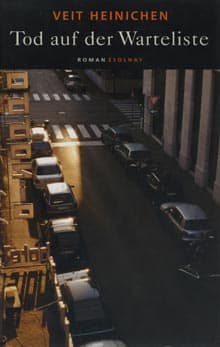
Original title
Tod auf der Warteliste
Date of publication
2003 Paul Zsolnay Verlag, Wien
Versions
Italian (Morte in lista d’attesa, 2004, Edizioni e/o), Spanish (Muerte en lista de espera, 2005 Siruela), Norwegian (Døden på venteliste, 2006 Press), Dutch (Op de wachtlijst van de dood, 2006 De Geus), French (Morts sur liste d’attente, 2008 Seuil), Polish (Śmierć na liście oczekujących, 2012 Noir sur Blanc)
Troubled times for Commissario Laurenti. News arrive which are neither easy to handle nor risk free. Trieste – the city where he has been living for the last 25 years – seems changed. In Laurenti’s opinion this has to do with the new government. In his personal life as well it is time for change: from the city centre he moves into the seaside mansion of the old coroner Galvano. The new house is beautiful and bigger then the old one, and lies in a wealthy part of the city – and people gossip. Laurenti’s affair with Živa – the charming Croatian public prosecutor – secretly continues. Moreover, to further complicate Laurenti’s life, there is the dog Cluzot, an old police dog that the Commissario takes in with him against everyone’s opinion.
This time, the Commissario’s new case is a spider web involving the illegal traffic of organs. Hidden behind a notable group of citizens, the trade spreads around the mutilated corps of poor people arrived in the West in search of fortune. Everything seems to lead to the private clinic La Salvia – famous among the international jet-set. Vasile and Ramsey – a poor Romanian chap and a journalist – are two sides of our society and are both driven by revenge.
In this novel the double face and the cruelty of society play the main roles in a well built story that keeps the reader breathless until the very last pages of the book.
